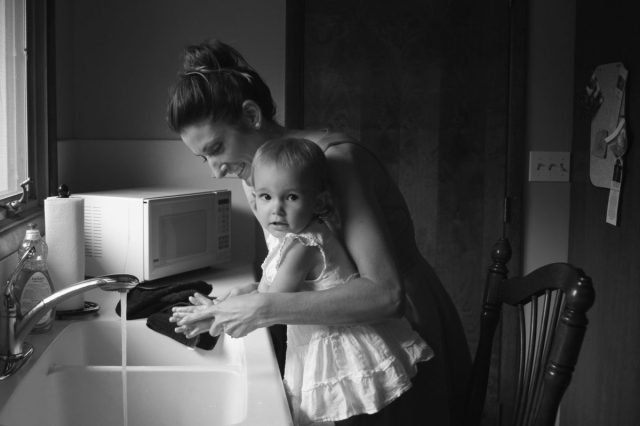Photo: Clay Banks via Unsplash
Every fall the kids go back to school but what about when it’s Mom’s turn to go back to school? Going back to school after you’ve been doing the important work of being a mom can be intimidating. You might feel like you’re totally out of the loop or that you’ll struggle to fit in.
The good news is that going back to school, while scary, can be very rewarding and valuable. A lot of the process will involve figuring things out as you go, but there are a few tips that can help you prepare for success. Keep these 10 things in mind as you get ready for your first day back in the classroom.
1. Use the University’s Resources for Mothers as Much as Possible
Universities understand that moms going back to school have unique challenges. Many schools have resources and groups to help mothers succeed and manage their coursework. In most cases, you’ll have to seek out information especially for mothers. The best way to find out what resources are available at your university is to ask! Your advisor can help you find the help you need to feel supported.
2. Be Patient With Yourself—You Don’t Need a Full Schedule Right Away
It can be very tempting to just get through your program as quickly as possible so you can get back into the workforce. However, it can be a mistake to take on a full course load right away.
Try easing into it. Start with one or two courses and work your way up if you find that you’re managing things with ease. You can even choose an online program if that’s more manageable for your schedule.
Be realistic and don’t feel bad if you can’t take a full load of classes. It’s better to do well in a few classes than to barely pass a lot at once. Be patient with yourself.
3. Ensure Your Kids Understand the Life Change You’re Making
Your kids, especially if they are younger, may have difficulty understanding the changes in their lives that your going back to school will bring. That’s why it’s important to be open with them, to reassure them, and to explain exactly why you’re taking this step. Getting them on board and helping them to understand why it’s important for you to go back to school will make the transition easier.
4. Identify Why You’re Going Back
There are going to be some moments during your educational journey when you feel like giving up. That’s normal!
To help prepare for these inevitable speed bumps, you should identify exactly why going back to school is important to you. For many women, it’s the ability to provide for their families. Just 14% of workers in the U.S receive family leave benefits, and many women have to go back to work almost immediately after giving birth. If you want a better future for your family, use that as your motivation during the hard times.
5. See If You Have Any Available Credits to Transfer Over
If you attended college in the past, you may not have even considered that your credits could transfer over. While each school has different requirements, it’s always worth checking to see if some of the work you’ve done in the past could give you a leg up and help you as you head back to school. You’ll save money, time, and you won’t have to re-learn information you already know.
6. Consider Scholarships Exclusive for Moms
Did you know there are grants and scholarships out there just for moms going back to school? If you need financial help to go back to school, it’s definitely worth spending some time applying for scholarships designed for returning students with kids.
7. Establish a Schedule…and Stick to It
Juggling childcare, school, and for some moms, work, can be difficult. The best way to manage your time is to establish a schedule from the very beginning and stick to it. Getting behind can make you feel overwhelmed, so it’s important to be realistic about how long everything will take.
8. Don’t Forget to Budget
Going back to school is expensive—and so is caring for children. As a mom returning to school, you’ll need to budget and plan for expenses that may come up during your program. Books, fees, and other expenses can really add up, so make sure you add them to your budget. By making a budget, you can minimize your debt load and make your life easier when you graduate.
9. Connect with Your Advisor
It’s important to ask for help when you need it, so start building those crucial support relationships as soon as you head back to campus. Connect with your advisor right away. You’ll get access to school resources and start building trust that could help you later on.
10. Don’t Forget to Enjoy the Experience
While it’s easy to remember all the challenges you’ll face when you go back to school, it can be harder to focus on the positives. Try to enjoy the experience. Make new friends, get into what you’re learning, and remember that this will all be worth it in the end.
Sarah Daren has been a consultant for startups in industries including health and wellness, wearable technology, and education. She implements her health knowledge into every aspect of her life, including her position as a yoga instructor and raising her children. Sarah enjoys watching baseball and reading on the beach.

















